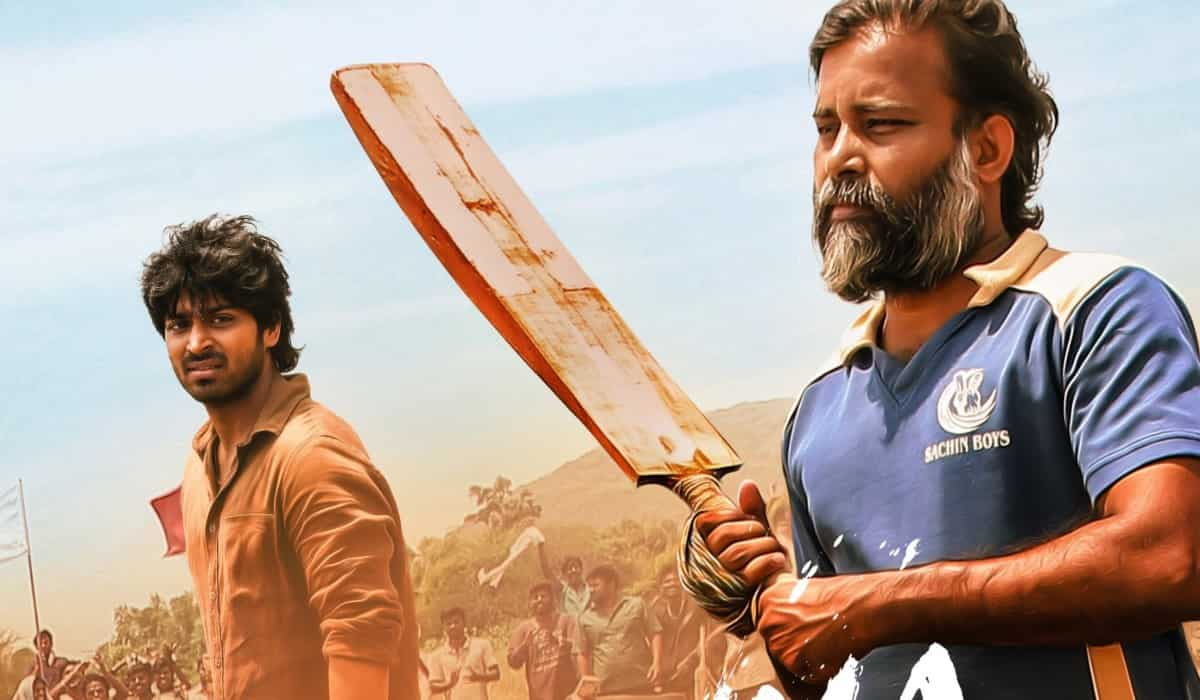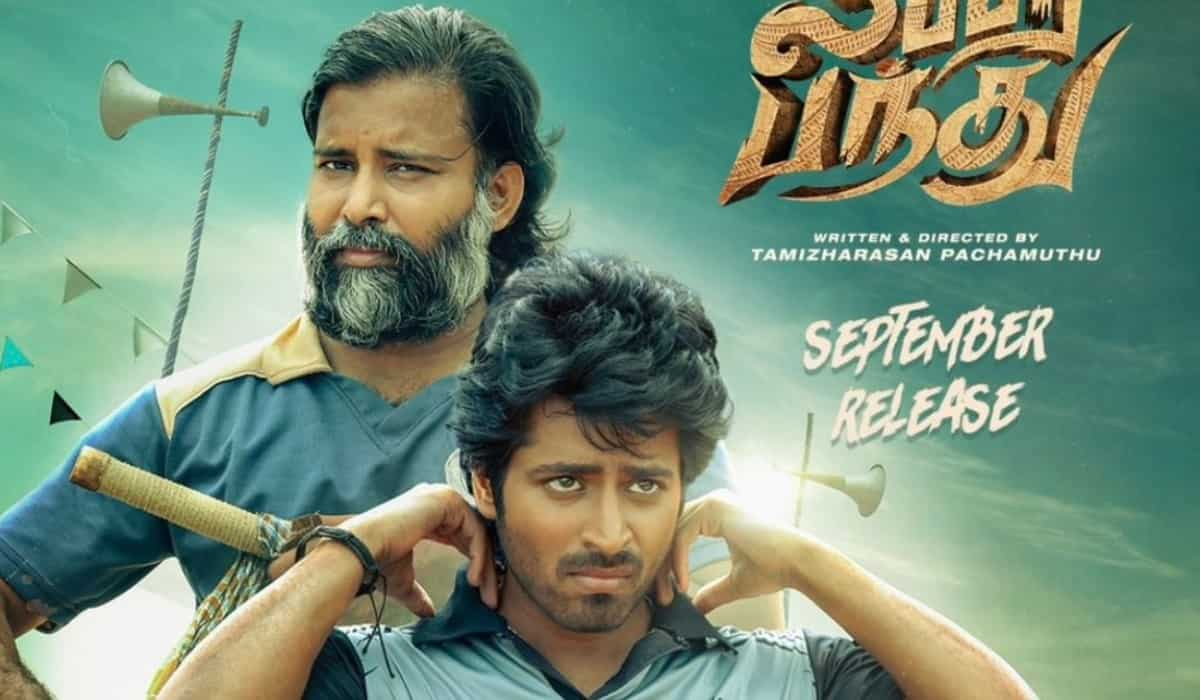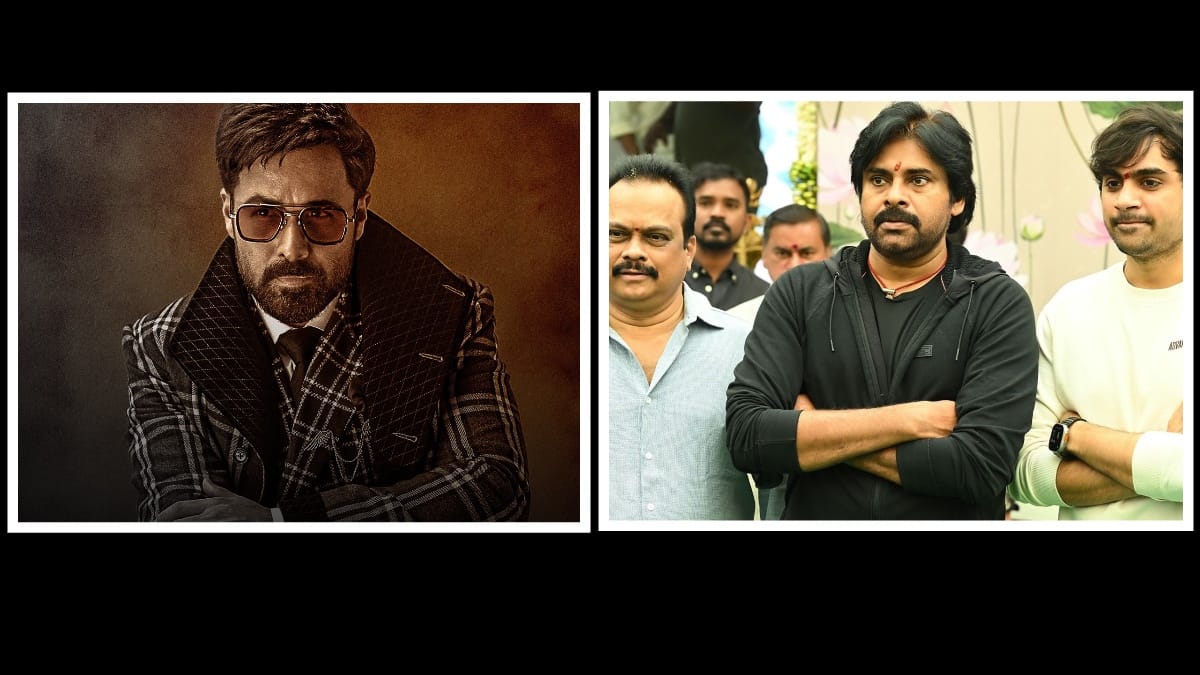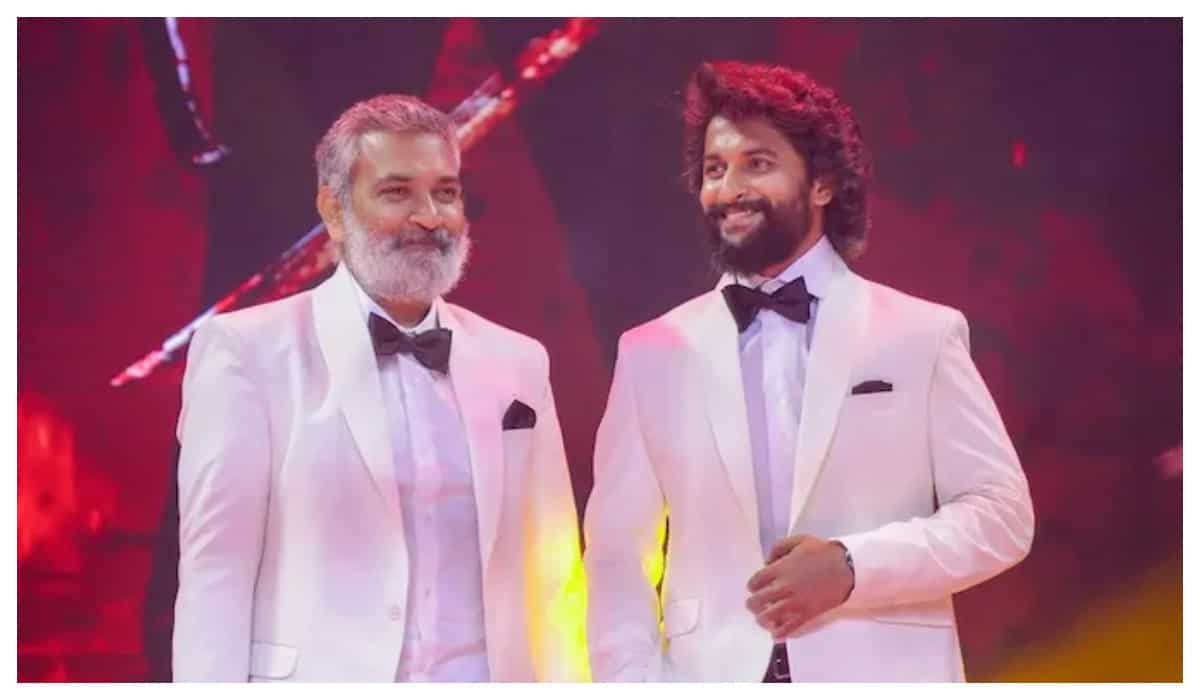
Lubber Pandhu Movie Review: Harish Kalyan's sports-family drama hits it out of the park, delivers six after six through powerful dialogues
7 months ago | 129 Views
Lubber Pandhu story:
Anbu (Harish Kalyan) is a skilled bowler who does not have a team of his own and is a guest player for various teams. Meanwhile, there is a much older and seasoned batter in Gethu aka Poomalai (Attakathi Dinesh) who plays cricket much to the chagrin of his wife Asodhai (Swaswika) with whom he had an inter-caste marriage and has a daughter Durga (Sanjana). While circumstances lead to Anbu and Gettu to be at loggerheads, the film weaves a story of sportsmanship, personal rivalry, and oppression in a seamless manner.
Lubber Pandhu review:
What is cricket? For India, it is much more than the unofficially designated sports of the country. So much so that, the film takes different forms suiting to the needs of lakhs of people who come from different class and backgrounds. Director Tamizharasan Pachamuthu, in his debut film Lubber Pandhu, crafts cricket as a tool that holds the pride and chivalry of humans, who are sidelined, and refused to shine in the spotlight.

At one point in Lubber Pandhu (which by the way, creates so many moments and endearing situations), Karuppaiah (Kaali Venkat), the founder of the Jolly Friends cricket team is asked why he loves cricket so much, to which he says, “pudikum, adhan reason, adhan pudikum” (he likes, and that is the reason, hence he likes). Tamizharasan packs so many details in the little dialogues sprinkled through the film that leaves you almost grinning most of the time as you root for these characters’ victory. Lubber Pandhu is not merely a street cricket drama, but one which cleverly layers family drama and socio-economic equations.
For example, caste oppression is a running theme in the film, but we are not fed with it directly. We know Anbu does not have a team of his own, and why Jolly Friends players look down upon him, or for that matter when Anbu’s friend Kathadi (Bala Saravanan) points out to Karuppaiah that while the other players are his brothers, Anbu is still designated to be brother-like only. The director, at no point, pushes the film to a story on caste oppression but leaves breadcrumbs for the viewers to decipher themselves. Another brilliance in this tandem is when the film merely mentions that Asodhai and Gethu eloped in 12th standard to have an inter-caste marriage, but never says who is the lower caste among them. It is only slowly and steadily we get to know when we are told who introduced eating more meat in the household, and how a certain in-law relative has grown so accept-full of the marriage that she asks to be served food in the household.
There is so much to unpack in Lubber Pandhu, and one has to say the film is an all-rounder that hits sixer after sixer. Classic songs of known actors are a recurring theme in Lubber Pandhu. They are played when players enter the pitch, and we have designated stars for each of the lead. If it is Vijay numbers for Anbu, Gethu gets the golden songs of Vijayakanth, and they are not in there to simply jump onto the bandwagon of using yesteryear songs for nostalgia. Instead, these songs act as special numbers themselves to add to the tensing narrative that sports films naturally derive their fodder from. In fact, playing these songs when the players arrive also becomes a statement of power, and prestige.

Harish Kalyan as Anbu and Attakathi Dinesh as Gethu are brilliant in their respective characters, with their roles having an evolution from foes turned friends, or rather in this case, father-in-law and son-in-law, is beautiful. One might think of Harish Kalyan’s Parking for comparison, simply because it involves two men from different generations locking horns, but Lubber Pandhu is a delightful deviation and has much more to talk about and offer in terms of the narratives it combines.
I cannot get enough of talking about the dialogues in the film that Tamizharasan has penned. In terms of simplicity, they are basic, but in terms of placement, Lubber Pandhu becomes a superbly crafted screenplay, with the words being cherries on the cake. When Durga finally allows Anbu to go and play the match, she says as she takes a glance at her mother and knowing her father is already on the ground, “adhu adhoda aala veladha anirpirchu (she has let her partner to play).” Even as Durga is addressing her parents, she knows they are husband and wife first, and so smartly puts herself and her lover in the same equation. So much told in so few words, are worthy enough to be cherished after moments you walk out of the theatre.
Lubber Pandhu verdict
Lubber Pandhu is a superbly crafted sports drama that cleverly entwines family drama to sportsmanship. With the cast ably supporting a film that places small moments of cherishing and powerful impact on the top, Tamizharasan’s film is undoubtedly one of the best Tamil films this year, and sports drama to have come out.



.webp)

















